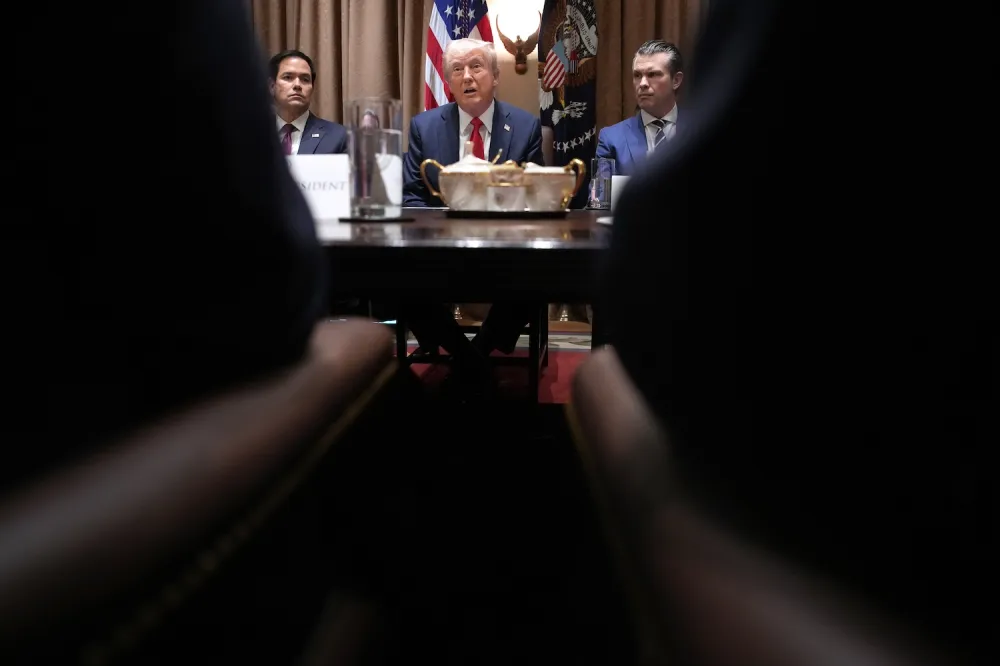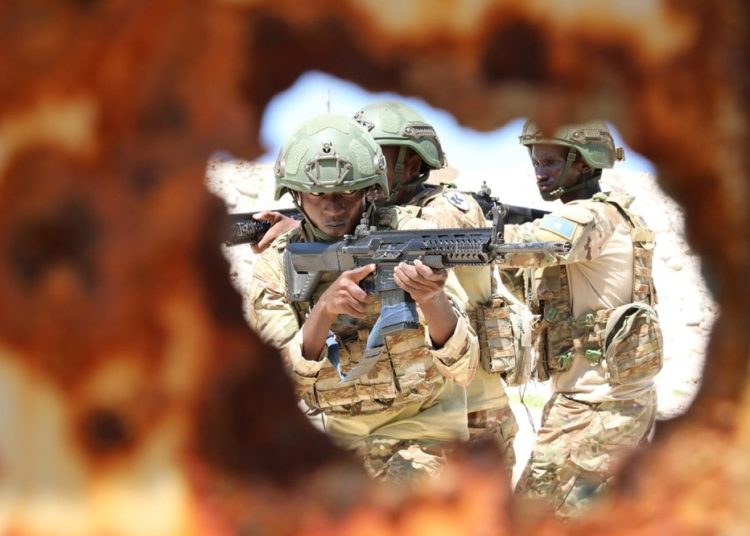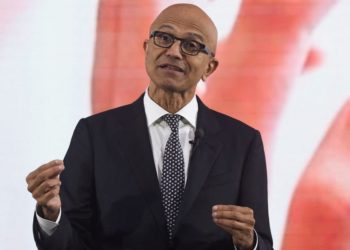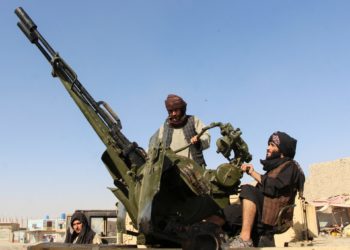U.S. President Donald Trump was reelected as a self-declared pro-peace candidate. But his administration is now setting up the dominoes for what could be a ruinous and unnecessary war: a bid for regime change in Venezuela.
On Aug. 7, the Trump administration announced that it had doubled the reward for the arrest of Venezuelan President Nicolás Maduro to $50 million. The United States had already declared Maduro to be the head of a drug cartel and sanctioned that cartel as a specially designated global terrorist, alleging that it provided material support to groups designated as foreign terrorist organizations, including Tren de Aragua and the Sinaloa Cartel. (It is worth noting the Mexican government has said it has found no link between the Maduro government and Mexico-based Sinaloa.) Most significantly, Trump has reportedly ordered the use of force against terrorist-designated cartels—the very kind that the U.S. government has designated Maduro’s government to be.
It’s not just that the Trump administration has lined up a legal basis for the use of military force against the Venezuelan government. U.S. warships have already been dispatched to Venezuela’s coast along with a significant contingent of U.S. Marines. Maduro for his part has responded with equally enthusiastic saber-rattling, mobilizing militias and urging Venezuelans to defend their homeland. It is no exaggeration to say that the United States and Venezuela are closer to war at this moment than at any time in the present century. Indeed, on September 2, Secretary of State Marco Rubio announced that the U.S. military had conducted a lethal military strike on an alleged “drug vessel” that had departed Venezuela—a sharp departure from well-established and less deadly maritime interdiction methods such as Coast Guard boardings.
Regime change in Venezuela has been a long-standing goal of those in Trump’s orbit, if not Trump himself. During Trump’s first term, the United States threw its full support behind Juan Guaidó’s bid for the Venezuelan presidency. Tensions in 2019 escalated nearly to the point of war until Trump pulled back from the brink, likely recognizing how domestically unpopular a full-scale war in Venezuela would be, including among many of his own intervention-skeptic supporters.
Even so, the Trump administration enacted ruinous economic sanctions, including on the Venezuelan oil industry, despite clear warnings that doing so would worsen the Venezuelan refugee crisis across the Western Hemisphere. Such massive Venezuelan refugee flows have indeed come to pass, overwhelming the capacity of many Latin American states to host them and leading many Venezuelans to make the journey to the United States. The first Trump administration’s hard-line sanctions policy thus inadvertently helped pave the way for the second Trump administration, as large-scale Venezuelan migration did much to create the perception of a border crisis that Trump rode back to the White House.
As a Florida senator, Rubio was at the center of the first Trump administration’s efforts for regime change in Venezuela. He is a longtime opponent of Latin America’s leftist governments—including not just the left-wing dictatorships in Venezuela, Nicaragua, and Cuba but also many of the democratically elected leftist governments, such as Mexico’s and Colombia’s, whose cooperation remains essential for managing Venezuelan migration to the United States. Newly empowered, as both U.S. national security advisor and secretary of state for the first time since Henry Kissinger, Rubio likely sees unfinished business with Maduro.
It need not be this way. Coming into his second term, Trump’s top priority in dealing with Venezuela was addressing the migration crisis that his own first-term regime change efforts had helped create. The inability to deport Venezuelans to their country of origin due to a lack of normal diplomatic relations between the United States and Venezuela has proved a significant obstacle for Trump’s mass deportation policies, which have stripped legal status from hundreds of thousands of Venezuelan asylum-seekers.
In January, just before Rubio traveled to several Latin American countries on his first trip as secretary of state, Richard Grenell—who as “special presidential envoy for special missions” reports directly to Trump and not Rubio—visited Caracas and met personally with Maduro himself. The week before, Rubio had hopped on a call with the leaders of Venezuela’s opposition, including Edmundo González Urrutia, whom the Trump administration purports to recognize as Venezuela’s legitimate president.
Yet Grenell’s talks with Maduro demonstrated that productive diplomacy with Venezuela was possible, securing a deal to release American hostages in the country while Maduro agreed to accept regular deportee flights. While the White House was careful to deny that this deal amounted to normalization, Maduro’s brief cooperation on migration displayed his own diplomatic eagerness.
It was Rubio who effectively outmaneuvered this promising diplomacy. One month after Grenell’s trip, Trump canceled Chevron’s license to continue operating in Venezuela despite U.S. oil sanctions—a concession that Rubio had vehemently opposed—inevitably precluding any continued improvement in relations.
Yet Rubio took care to ensure his sabotage of diplomacy with Venezuela still aligned with his boss’s mass deportation priorities. Crucially, Rubio secured an alternative deportation destination for Venezuelans by making a deal with Salvadoran President Nayib Bukele. Venezuelan migrants—many of whom had entered the United States legally and some targeted for no other reason than having tattoos—were deported to a maximum security prison in El Salvador, known as CECOT, where we now know they were subjected to shocking human rights violations, including beatings and sexual assault, according to detainee interviews. For Rubio and likeminded Latin America hawks, this human suffering was a price worth paying to avoid cooperation with Maduro.
This brings us to one of the major problems with the prospect of U.S.-led regime change in Venezuela: Association with the Trump administration’s own harsh migration policies has hurt the opposition’s legitimacy and isolated it within Latin America. Say what you will about Maduro—and he is without a doubt an authoritarian ruler who has clung to power undemocratically—but he still evidenced more public concern for the Venezuelan citizens in CECOT than either the United States or the Venezuelan opposition did. It was Maduro who eventually secured the release of the Venezuelan citizens held in El Salvador in exchange for releasing several Venezuelan political prisoners and U.S. citizens (one of whom had been convicted of triple homicide).
Given this reality, it is currently Maduro who can position himself as the defender of ordinary Venezuelans, while the opposition looks feckless and weak, subject to the whims of its patron in Washington. Such narratives are being played up to Venezuela’s domestic audiences, with the Maduro regime organizing marches in Caracas to condemn the U.S. and Salvadoran abuse of Venezuelan citizens. Under the current circumstances, it is unlikely that many Venezuelans would uncritically welcome U.S. troops as liberators.
Nor would the Trump administration have the diplomatic support it needs from Latin America to effect a successful regime change in Venezuela. Unlike in 2019, Colombia is now run by a left-wing government that has openly clashed with the Trump administration on issues including the use of military aircraft for deportation flights and Gaza. Rubio’s open hostility to Colombian President Gustavo Petro will certainly not help matters. Brazil finds itself facing U.S. tariffs as part of the Trump administration’s efforts to interfere in the Brazilian justice system on behalf of former Brazilian President Jair Bolsonaro, a Trump ally, who is facing charges for his own Jan. 6-style attempt to stay in power after losing an election. And while Mexico maintains a pragmatic working relationship with its powerful neighbor, President Claudia Sheinbaum and her ruling Morena party have repeatedly made clear that they oppose U.S. interventionism in Latin America.
It’s worth noting that Brazil, Colombia, and Mexico were together at the center of the diplomatic effort to pressure Maduro into recognizing the results of the last Venezuelan election—an effort that the Trump administration appears to have entirely abandoned in favor of unilateral sanctions and gunboat diplomacy. It is impossible to imagine strong U.S.-Latin America cooperation over Venezuela now. Even traditional U.S. allies may be alarmed to see the United States use force in the Western Hemisphere in the context of Trump’s territorial threats against Canada, Greenland, and Panama.
Then there are the actual military and governing challenges of regime change in Venezuela. To be sure, the U.S. military remains by far the most formidable in the Western Hemisphere. Yet Venezuela in 2025 is not Panama in 1989; it is a much bigger country with a much larger population. If the U.S. military decapitated the Venezuelan state through military means, whether airstrikes or boots on the ground, who would provide security in Caracas? Who would manage the Venezuelan oil fields? Which elements of the existing Venezuelan security forces would be brought into government? Which would turn toward crime or insurgency if left out? Amid a chaotic U.S. occupation and inevitable political instability, Venezuelans would no doubt continue to migrate abroad, with many inevitably heading north. And if any disruption to the Venezuelan oil industry resulted, global energy prices could rise further. Even if everything went relatively smoothly, it would still be a costly diversion of limited U.S. resources.
These were all realities in 2019, when Trump blinked. They have not gone away in the intervening years. A U.S. regime change war in Venezuela, whatever shaky legal grounds are presented, would undoubtedly prove every bit the disaster that the U.S. regime change wars in the Middle East proved to be. Only this time, the displaced people would be able to walk to Texas.
In June, elements of Trump’s political coalition were able to exert considerable pressure to prevent further escalation of the brief U.S. war with Iran. Allowing the Iranian regime to survive, however odious, was wisely recognized as preferable for U.S. interests than another extended war or power vacuum in the Middle East.
Let us hope that similar dynamics prevail in regards to Venezuela. Some combination of strong diplomacy from Latin American states, congressional use of its constitutional war powers, and backlash from Trump’s own political base is needed to prevent the U.S. war with Venezuela that the current administration has dangerously teed up—before Trump decides to take a swing.
The post The U.S. Is Inching Toward Regime Change in Venezuela appeared first on Foreign Policy.




